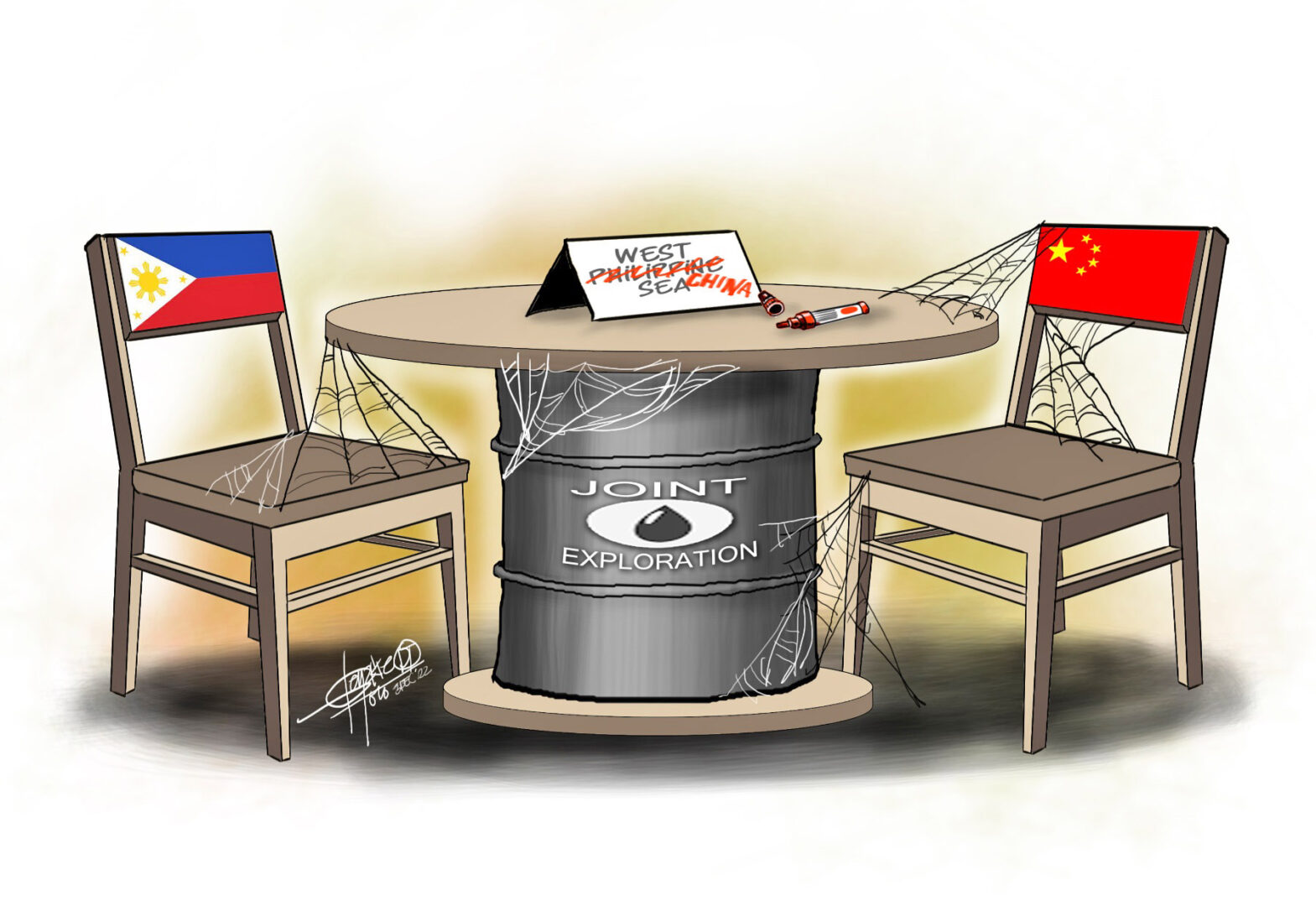“China claims it as theirs, but it’s actually ours.”
That was President Bongbong Marcos speaking, referring to the West Philippine Sea — vis-à-vis a previous “government-to-government” approach to oil and gas exploration in the disputed maritime territory.
“I think there might be other ways… We’ll have to find a way because we really need it,” Marcos said, sending a message that he won’t be subservient to China’s stubbornness.
“The Philippines needs whatever we can find there,” Marcos added. “There,” in this case, specifically refers to the Recto (Reed) Bank, which sits in the West Philippine Sea within the Philippines’ 370-kilometer exclusive economic zone or EEZ, but is likewise being claimed by China.
The Reed Bank had been identified as a Philippine-Chinese joint-venture site for gas exploration and development.
For context, seismic surveys showed evidence the Reed Bank or Tablemount (underwater volcanic mountain) is rich in oil and gas deposits.
Exploration in the area commenced in 1970, and in 1976 gas was found in the Sampaguita structure following the drilling of a well. Three wells had been drilled to date, all located at the south west end of the Sampaguita structure.
The Philippine government granted Sterling Energy PLC a concession to extract resources in June 2002. In April 2005, Forum Energy PLC acquired the concession from Sterling and became its operator.
Forum Energy PLC is a London-based listed oil and gas exploration firm focused on the Philippines. It is 64.45 percent owned by Philex Petroleum Corporation.
In February 2010, the license was converted to a Service Contract. In February 2011, Forum Energy began a geophysical survey in an area where, in March that year, two People’s Republic of China patrol boats threatened to ram Forum Energy’s ships, ordering them to leave the area, claiming it was under PRC jurisdiction.
Forum Energy decided to stop operations.
In 2016, The Hague International Arbitration Court cited the United Nations Convention on the Law of the Sea that China’s claims of historic rights within the nine-dash line, which Beijing uses to demarcate its claims in the South China Sea, were without legal foundation.
The panel also concluded that Beijing’s activities within the Philippines’ 200 nautical-mile exclusive economic zone, such as illegal fishing and environmentally ruinous artificial island construction, infringed on Manila’s sovereign rights.
In November 2018, the Philippines and China signed a memorandum of understanding on joint oil and gas development in the West Philippine Sea, but now, Marcos said negotiations with China had not progressed — since China is insisting that its own terms be followed.
In April this year, the Department of Energy confirmed the Cabinet-level Security, Justice and Peace Coordinating Cluster terminated negotiations with China. The SJPCC is composed of the secretary of national defense as chair and the secretaries of the interior and local government, foreign affairs, justice, as well as the executive secretary, national security adviser, and presidential adviser on the peace process as members.
In other words, the Philippines will proceed to find oil in Reed Bank on its own. Whether China will intervene again is something worth watching.
